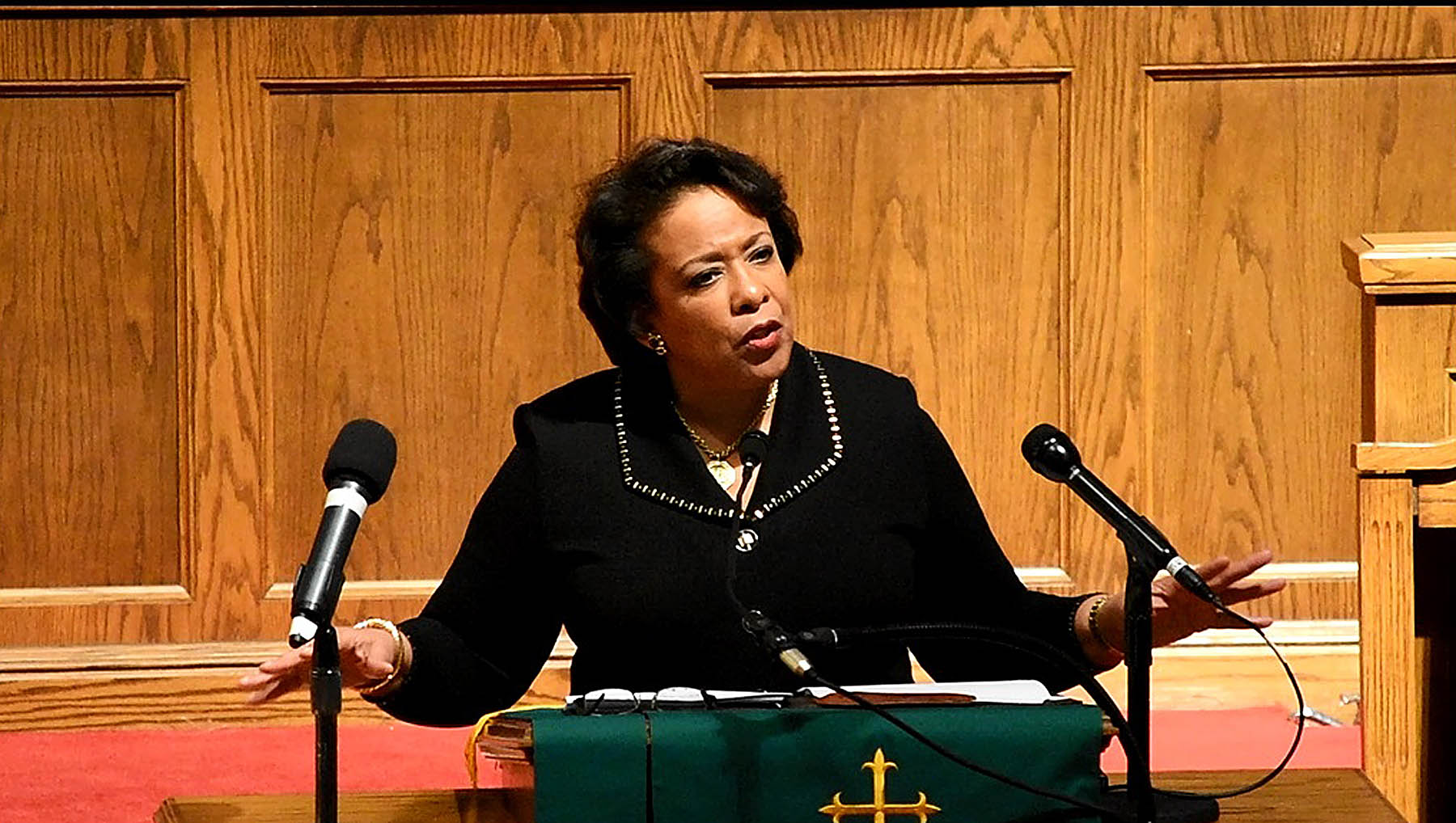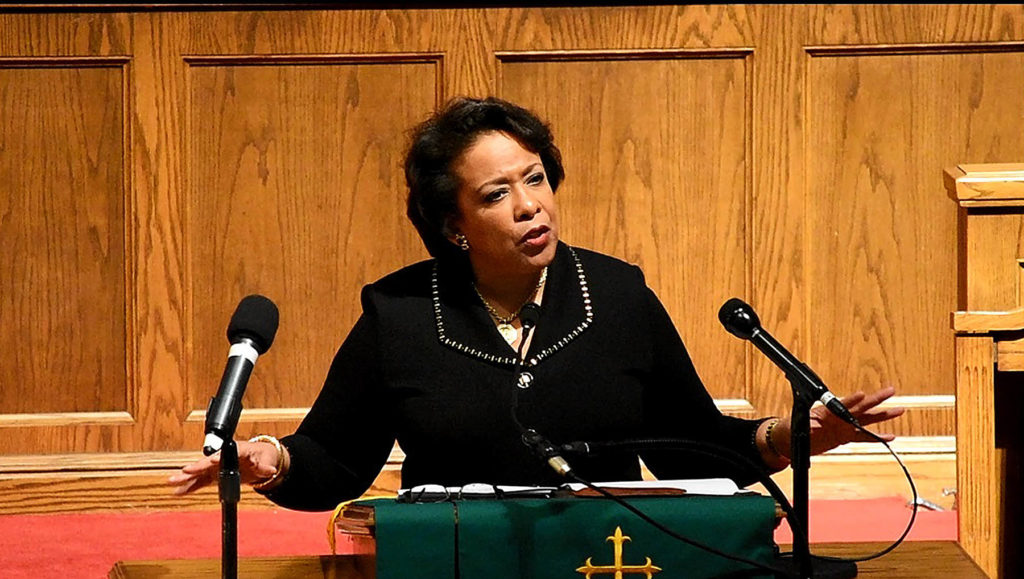
By Solomon Crenshaw Jr.
For The Birmingham Times

While there has been progress in the fight for justice, that fight is far from over,
United States Attorney General Loretta Lynch told a packed sanctuary at Sixteenth Street Baptist Church on Sunday during her final speech before leaving office.
“We have come a long way in our struggle to build a society worthy of the promises set forth in our founding documents, but there is no doubt that we still have a long way to go,” she said.
Lynch was the featured speaker at a Martin Luther King Jr. commemoration program at the church made famous by the bombing that killed four little girls.
King’s life was a brief, she said, but one that left an enduring legacy.
Lynch said that the civil rights icon “labored tirelessly to obey the Word of God and to advance the cause of freedom. We gather to renew our commitment to Dr. King’s work in our own time: the work of creating a society that respects the rights and affirms the dignity of all people, regardless of color or creed, gender or ethnicity. That is the dream for which Martin Luther King Jr. gave his life. And it is the ideal towards which we must continue striving today.”
Lynch said the Sixteenth Street Baptist Church was a fitting venue to commemorate Dr. King noting that the church is a reminder that “freedom is not free” and individuals today must ensure that “the triumphs of the past remain intact for Americans of the future.”
Barriers to voting rights
Fifty years after the passage of the Voting Rights Act – “and 50 years after this very church was bombed for its role in the civil rights movement – an unspeakable act of malice that killed four little girls” — there are new attempts to build barriers to the voting booth, Lynch said.
There are threats to other places of worship, including anti-Semitic slurs painted on the walls of synagogues, and bomb threats and arson directed at mosques, she said.
Lynch recalled the tragic shooting that claimed nine innocent lives during Bible study at Mother Emanuel AME in Charleston in 2015.
She expressed pride in the work of the Department of Justice under the Obama Administration. Partly because of the Matthew Shepard and James Byrd Jr. Hate Crimes Prevention Act that President Obama signed in 2009, she said DOJ has convicted more defendants on hate crimes charges than at any other time in history.
The attorney general did note that the Supreme Court’s decision in Shelby County has “significantly curtailed” the department’s ability to enforce the Voting Rights Act. “That does not mean we are standing still while states build new obstacles to the polling place,” she said.
Now is not the time to become complacent, Lynch said.
“I know that in our pursuit of a brighter future, we still face the headwinds of hatred, intolerance and injustice – winds that often seem to grow stronger the more we achieve,” she said. “There is no doubt that we face real and difficult obstacles in our ongoing quest for a more just and united future.
“But if there is one lesson we can draw from the life of Martin Luther King, it is that adversity is not a cause for despair. It is a call to action.”




